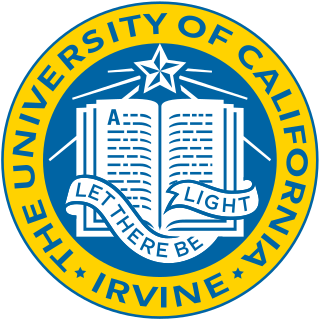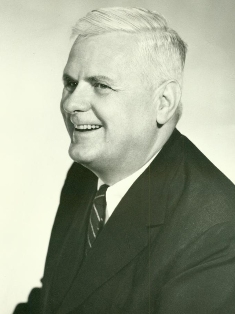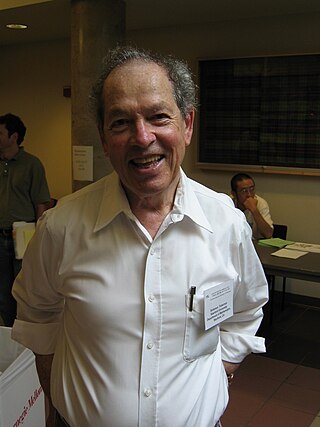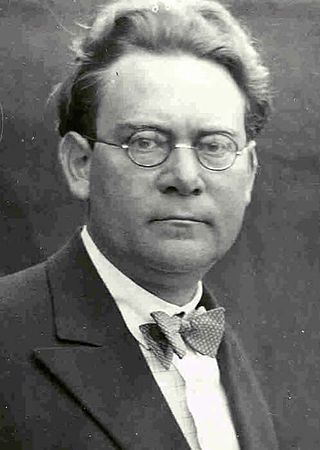Related Research Articles

The University of California, Davis is a public land-grant research university near Davis, California. Named a Public Ivy, it is the northernmost of the ten campuses of the University of California system. The institution was first founded as an agricultural branch of the system in 1905 and became the seventh campus of the University of California in 1959.

The University of California, Irvine is a public land-grant research university in Irvine, California. One of the ten campuses of the University of California system, UCI offers 87 undergraduate degrees and 129 graduate and professional degrees, and roughly 30,000 undergraduates and 6,000 graduate students are enrolled at UCI as of Fall 2019. The university is classified among "R1: Doctoral Universities – Very high research activity", and had $523.7 million in research and development expenditures in 2021. UCI became a member of the Association of American Universities in 1996. The university was rated as one of the "Public Ivies" in 1985 and 2001 surveys comparing publicly funded universities the authors claimed provide an education comparable to the Ivy League.
David Gauthier is a Canadian-American philosopher best known for his neo-Hobbesian social contract (contractarian) theory of morality, as developed in his 1986 book Morals by Agreement.

Alonzo Church was an American mathematician, computer scientist, logician, and philosopher who made major contributions to mathematical logic and the foundations of theoretical computer science. He is best known for the lambda calculus, the Church–Turing thesis, proving the unsolvability of the Entscheidungsproblem, the Frege–Church ontology, and the Church–Rosser theorem. He also worked on philosophy of language. Alongside his doctoral student Alan Turing, Church is considered one of the founders of computer science.

Rudolf Carnap was a German-language philosopher who was active in Europe before 1935 and in the United States thereafter. He was a major member of the Vienna Circle and an advocate of logical positivism. He is considered "one of the giants among twentieth-century philosophers."
A non-monotonic logic is a formal logic whose conclusion relation is not monotonic. In other words, non-monotonic logics are devised to capture and represent defeasible inferences, i.e., a kind of inference in which reasoners draw tentative conclusions, enabling reasoners to retract their conclusion(s) based on further evidence. Most studied formal logics have a monotonic entailment relation, meaning that adding a formula to a theory never produces a pruning of its set of conclusions. Intuitively, monotonicity indicates that learning a new piece of knowledge cannot reduce the set of what is known. A monotonic logic cannot handle various reasoning tasks such as reasoning by default, abductive reasoning, some important approaches to reasoning about knowledge, and similarly, belief revision.

Solomon Feferman was an American philosopher and mathematician who worked in mathematical logic.

Nicholas Rescher is a German-American philosopher, polymath, and author, who has been a professor of philosophy at the University of Pittsburgh since 1961. He is chairman of the Center for Philosophy of Science and was formerly chairman of the philosophy department.

Carl Gustav "Peter" Hempel was a German writer, philosopher, logician, and epistemologist. He was a major figure in logical empiricism, a 20th-century movement in the philosophy of science. He is especially well known for his articulation of the deductive-nomological model of scientific explanation, which was considered the "standard model" of scientific explanation during the 1950s and 1960s. He is also known for the raven paradox.
"Public Ivy" is an informal term to refer to public colleges and universities in the United States that are perceived to provide a collegiate experience on the level of Ivy League universities. There is no trademark for the term, and the list of schools associated with the classification have changed over time.

Hans Reichenbach was a leading philosopher of science, educator, and proponent of logical empiricism. He was influential in the areas of science, education, and of logical empiricism. He founded the Gesellschaft für empirische Philosophie in Berlin in 1928, also known as the “Berlin Circle”. Carl Gustav Hempel, Richard von Mises, David Hilbert and Kurt Grelling all became members of the Berlin Circle.

Brian Skyrms is an American philosopher, Distinguished Professor of Logic and Philosophy of Science and Economics at the University of California, Irvine, and a professor of philosophy at Stanford University. He has worked on problems in the philosophy of science, causation, decision theory, game theory, and the foundations of probability.
Adolf Grünbaum was a German-American philosopher of science and a critic of psychoanalysis, as well as Karl Popper's philosophy of science. He was the first Andrew Mellon Professor of Philosophy at the University of Pittsburgh from 1960 until his death, and also served as co-chairman of its Center for Philosophy of Science, research professor of psychiatry, and primary research professor in the department of history and philosophy of science. His works include Philosophical Problems of Space and Time (1963), The Foundations of Psychoanalysis (1984), and Validation in the Clinical Theory of Psychoanalysis (1993).

The School of Social Sciences is an academic unit of the University of California, Irvine (UCI) that studies the social sciences. The School is the largest academic unit in the university with an enrollment of over 5,300 students. More than a third of the bachelor's degrees conferred at UCI are from the School of Social Sciences. It is home to the departments of Anthropology, Chicano-Latino Studies, Cognitive Science, Economics, Logic and Philosophy of Science, Political Science, International Studies, and Sociology.

The University of California, Irvine School of Law is the law school at the University of California, Irvine, a public research university in Irvine, California. Founded in 2007, it is the fifth and newest law school in the UC system. At the time of its founding, it was the first new public law school in California in over 40 years.
Kyle Stanford is an American philosophy professor at the University of California, Irvine, who specializes in the philosophy of science.
Richard Zach is a Canadian logician, philosopher of mathematics, and historian of logic and analytic philosophy. He is currently Professor of Philosophy at the University of Calgary.
John MacFarlane is an American professor of philosophy at the University of California, Berkeley interested in logic and metaphysics. He has made influential contributions to truth-value theory inferential semantics. In 2015, he was elected a Fellow the American Academy of Arts and Sciences. He is also known for his contributions to open source software, especially the Pandoc document converter and other Markdown parsers and verifiers. MacFarlane was among the group of people that helped launch the CommonMark standardization effort for Markdown.

Susan Lynn Williams was an American marine biologist and Distinguished Professor of Evolution and Ecology at the University of California, Davis, where she directed the Bodega Marine Laboratory from 2000-2010. She researched marine coastal ecosystems and how they are affected by human activities. She was a strong advocate for environmental protection, credited with helping pass legislation expanding the boundaries of Northern California's Gulf of the Farallones and Cordell Bank national sanctuaries, increasing the area of federally-protected coastal waters.
Georges Van Den Abbeele is a literary scholar, culture critic, philosopher, and writer. He is Professor of Humanities at the University of California at Irvine, with appointments in the departments of English, and European Languages and Studies, with affiliated appointments in Comparative Literature, Classics, and philosophy, as well as the PhD Program in Culture and Theory.
References
- ↑ W, Justin (2015-10-13). "Aldo Antonelli (1962 - 2015) (several updates)". Daily Nous. Retrieved 2017-04-28.
- ↑ "G. Aldo Antonelli — People in the Division of Social Sciences at UC Davis". philosophy.ucdavis.edu. Retrieved 2017-04-28.